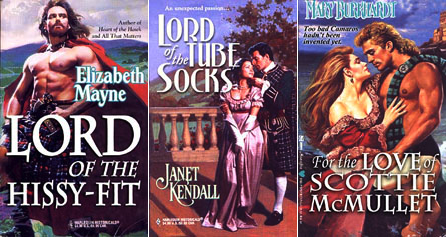More on Pro-Catholic Star Trek, and the Books of Winter's Long Night
 Last year at this time, I wrote "February Tales," a post about my favorite books growing up North of Boston. I mentioned them again in, "Phasers on Stun, Mr. Spock!" in December, though I got a little ribbing after that post. I guess there aren't many Star Trek fans among TSW readers.But I was surprised by how far and wide that post traveled beyond These Stone Walls. Catholic Exchange liked it a lot, and re-titled it "Beam Me Up by Christmas." Catholic TV also used it as a Christmas feature, as did a number of other Catholic blogs. So think of that, please, before you go poking any more fun at my Trekker-hood.Bernadette, a very nice TSW reader in Brighton, U.K., sent me an article by Angelo Stagnaro from the British Catholic paper, The Catholic Herald ("Catholic Propaganda on the Enterprise," 7 Jan 2011. Angelo Stagnaro recalled the same Star Trek episode I wrote of in "Phasers on Stun, Mr. Spock!" and described other examples of why Star Trek was "the most consistently ... pro-Catholic series in American television history." Thanks, Bernadette. It was a very good article.I thought of my Star Trek post last night when I came across a re-run of the 1986 film, "Star Trek IV: The Voyage Home." The premise of the film was simple: An alien probe was about to evaporate the oceans of late 23rd Century Earth because humpback whales had been hunted to extinction. The alien interest in humpback whales wasn't quite clear.Anyway, to stop the probe, the Star Trek crew had to travel back in time to the 20th Century in a borrowed Klingon battle cruiser, and retrieve a pair of humpback whales to repopulate the species in the 23rd Century, thus saving the planet. Hey, don't laugh! It could happen!I tuned in on the film just in time for a classic exchange between Admiral James T. Kirk (he'd been promoted!) and Mr. Spock. Having traveled back in time to 1986, they sat side by side on a San Francisco bus while they reflected on their unfamiliar surroundings:Spock: "Admiral, I've noticed your use of language has changed since we arrived. It's filled with, shall I say, 'colorful metaphors.’”Kirk: "It's the way they talk here. No one listens to you unless you swear every other word. It's in all the literature of the period."Spock: "Such as?"Kirk: "The collected works of Jacqueline Suzanne; the novels of Harold Robbins."Spock: "Ah! The Giants!"Of course, the joke was Hollywood's suggestion that these 1970s authors will still be read 300 years from now, and thus familiar to the Star Trek crew. The humor was lost on most prisoners since we have little access to the newest books. Most of the books in the prison library consist of other libraries' discarded books, so books that were popular a decade or two ago are just now arriving on our shelves. It's yet another factor lending weight to the impression in prison that time stands still.I don't mean to pick on Jacqueline Suzanne and Harold Robbins, though Mr. Spock might have. Their books are actually quite popular in prison where any human dramas - even the seediest ones - are preferable to the ones prisoners are living.
Last year at this time, I wrote "February Tales," a post about my favorite books growing up North of Boston. I mentioned them again in, "Phasers on Stun, Mr. Spock!" in December, though I got a little ribbing after that post. I guess there aren't many Star Trek fans among TSW readers.But I was surprised by how far and wide that post traveled beyond These Stone Walls. Catholic Exchange liked it a lot, and re-titled it "Beam Me Up by Christmas." Catholic TV also used it as a Christmas feature, as did a number of other Catholic blogs. So think of that, please, before you go poking any more fun at my Trekker-hood.Bernadette, a very nice TSW reader in Brighton, U.K., sent me an article by Angelo Stagnaro from the British Catholic paper, The Catholic Herald ("Catholic Propaganda on the Enterprise," 7 Jan 2011. Angelo Stagnaro recalled the same Star Trek episode I wrote of in "Phasers on Stun, Mr. Spock!" and described other examples of why Star Trek was "the most consistently ... pro-Catholic series in American television history." Thanks, Bernadette. It was a very good article.I thought of my Star Trek post last night when I came across a re-run of the 1986 film, "Star Trek IV: The Voyage Home." The premise of the film was simple: An alien probe was about to evaporate the oceans of late 23rd Century Earth because humpback whales had been hunted to extinction. The alien interest in humpback whales wasn't quite clear.Anyway, to stop the probe, the Star Trek crew had to travel back in time to the 20th Century in a borrowed Klingon battle cruiser, and retrieve a pair of humpback whales to repopulate the species in the 23rd Century, thus saving the planet. Hey, don't laugh! It could happen!I tuned in on the film just in time for a classic exchange between Admiral James T. Kirk (he'd been promoted!) and Mr. Spock. Having traveled back in time to 1986, they sat side by side on a San Francisco bus while they reflected on their unfamiliar surroundings:Spock: "Admiral, I've noticed your use of language has changed since we arrived. It's filled with, shall I say, 'colorful metaphors.’”Kirk: "It's the way they talk here. No one listens to you unless you swear every other word. It's in all the literature of the period."Spock: "Such as?"Kirk: "The collected works of Jacqueline Suzanne; the novels of Harold Robbins."Spock: "Ah! The Giants!"Of course, the joke was Hollywood's suggestion that these 1970s authors will still be read 300 years from now, and thus familiar to the Star Trek crew. The humor was lost on most prisoners since we have little access to the newest books. Most of the books in the prison library consist of other libraries' discarded books, so books that were popular a decade or two ago are just now arriving on our shelves. It's yet another factor lending weight to the impression in prison that time stands still.I don't mean to pick on Jacqueline Suzanne and Harold Robbins, though Mr. Spock might have. Their books are actually quite popular in prison where any human dramas - even the seediest ones - are preferable to the ones prisoners are living.

C.S. Lewis and J.R.R. Tolkien are also very popular here, as are many classic authors like Jack London, Mark Twain, and John Steinbeck. The literary elite are as snooty in prison as anywhere else. Not long ago in the Library check-out line, I saw a prisoner with a pair of Steinbecks sneer at a grizzly-looking guy in line with a stack of books by Jackie Collins and Nora Roberts.The question of what books endure the test of time doesn't really apply here. Many prisoners will read whatever they can get their hands on, within limits. Part of my job in the library is to fill book requests for prisoners who have misbehaved and have been hauled off to "the hole" for weeks, or months, or sometimes years. One prisoner I knew wrote asking us to just choose something for him, so one of my library co-workers sent off two Danielle Steel romance novels. We have about twenty of them. Two weeks later, his next request arrived with a rebuke that we violated the U.S. Constitution's prohibition against cruel and unusual punishment. I remedied the situation by sending two John Grisham legal thrillers, and he was happy.The prison library where I work has close to 17,000 books available to about 2,000 prisoners, and it's a very busy place. Another part of my job is to document a monthly report on traffic, services, books checked out, etc. Because of holidays, bad weather, and an annual inventory, the prison library was open only sixteen days in December, but in that time nearly 900 prisoners showed up to check out over 3,000 books.A good friend of mine in the real world was given a Kindle for Christmas this year, and sent me some of the specs. It's the size of a paperback, thinner than a pencil, and holds 3,500 books. I cannot fathom such a thing. Twenty years ago, I considered myself to be pretty technologically astute. Prison, however, has left me in a sort of nuclear winter as far as technology goes. Kindles, smart phones, iPads, WiFi, and MP3 Players didn't exist when I last saw the free world, and big, bulky cell phones had just appeared on the scene. A kind TSW reader in Texas asked if she could send me a Kindle, but, alas, such things are not permitted here.Our books are still in the old fashioned mode, and many of them take quite a beating. The library has two prisoners whose full time job is book repair. The local Concord Monitor newspaper stopped by one day last month, and took a few photos in and around the prison library. One of them is a view from the Library steps of the long "chow hall" ramp I described when I spotted that brilliant sunset in "Holidays in the Hoosegow."MY WINTER READINGI read a lot. I have a little book light to read after lights out at night, and I'm usually still reading well after midnight. Sometimes I dream about the books I'm reading, and occasionally my dreams improve on the plots. This winter, I'm re-reading three Tom Clancy novels. I've been an avid fan of Tom Clancy since just after I was ordained when someone gave me his mesmerizing, The Hunt for Red October. Tom Clancy is considered THE master of a genre called the "political techno-thriller," and I like his books for the very reason that some others don't. I love his long, tedious descriptions of the technology behind his plots. Tom Clancy has been the cause of many sleepless nights.Among the three Tom Clancy books I'm re-reading are Red Rabbit (G.P. Putnam 2002) in which Clancy's famous protagonist, CIA analyst Jack Ryan, uncovers a KGB plot to assassinate Pope John Paul II. I'm reading it again because I plan to write about Pope John Paul II very soon, and Tom Clancy was far ahead of the curve in his revelation that the KGB was involved in the 1981 assassination attempt. It turned out, once Moscow released some files a few years ago, that Tom Clancy was right.It isn't the first time Tom Clancy has been light years ahead of the news. The other two Clancy books I plan to re-read this winter are Debt of Honor and its sequel, Executive Orders. Written years before the terrorist plot of September 11, 2001 took shape, Tom Clancy's plot is eerily familiar. In the books, radical Islamic terrorists hi-jacked a packed airliner, and flew it into the U.S. Capital Building in Washington, DC during a joint session of Congress.In retaliation, in the Clancy books, the United States invaded Iraq, deposed and arrested Saddam Hussein, and triggered a long, drawn-out Mideast war. One result was that Iran emerged as a nuclear power threatening to invade Iraq after U.S. withdrawal. Tom Clancy seems always just ahead of the headlines.
One prisoner I knew wrote asking us to just choose something for him, so one of my library co-workers sent off two Danielle Steel romance novels. We have about twenty of them. Two weeks later, his next request arrived with a rebuke that we violated the U.S. Constitution's prohibition against cruel and unusual punishment. I remedied the situation by sending two John Grisham legal thrillers, and he was happy.The prison library where I work has close to 17,000 books available to about 2,000 prisoners, and it's a very busy place. Another part of my job is to document a monthly report on traffic, services, books checked out, etc. Because of holidays, bad weather, and an annual inventory, the prison library was open only sixteen days in December, but in that time nearly 900 prisoners showed up to check out over 3,000 books.A good friend of mine in the real world was given a Kindle for Christmas this year, and sent me some of the specs. It's the size of a paperback, thinner than a pencil, and holds 3,500 books. I cannot fathom such a thing. Twenty years ago, I considered myself to be pretty technologically astute. Prison, however, has left me in a sort of nuclear winter as far as technology goes. Kindles, smart phones, iPads, WiFi, and MP3 Players didn't exist when I last saw the free world, and big, bulky cell phones had just appeared on the scene. A kind TSW reader in Texas asked if she could send me a Kindle, but, alas, such things are not permitted here.Our books are still in the old fashioned mode, and many of them take quite a beating. The library has two prisoners whose full time job is book repair. The local Concord Monitor newspaper stopped by one day last month, and took a few photos in and around the prison library. One of them is a view from the Library steps of the long "chow hall" ramp I described when I spotted that brilliant sunset in "Holidays in the Hoosegow."MY WINTER READINGI read a lot. I have a little book light to read after lights out at night, and I'm usually still reading well after midnight. Sometimes I dream about the books I'm reading, and occasionally my dreams improve on the plots. This winter, I'm re-reading three Tom Clancy novels. I've been an avid fan of Tom Clancy since just after I was ordained when someone gave me his mesmerizing, The Hunt for Red October. Tom Clancy is considered THE master of a genre called the "political techno-thriller," and I like his books for the very reason that some others don't. I love his long, tedious descriptions of the technology behind his plots. Tom Clancy has been the cause of many sleepless nights.Among the three Tom Clancy books I'm re-reading are Red Rabbit (G.P. Putnam 2002) in which Clancy's famous protagonist, CIA analyst Jack Ryan, uncovers a KGB plot to assassinate Pope John Paul II. I'm reading it again because I plan to write about Pope John Paul II very soon, and Tom Clancy was far ahead of the curve in his revelation that the KGB was involved in the 1981 assassination attempt. It turned out, once Moscow released some files a few years ago, that Tom Clancy was right.It isn't the first time Tom Clancy has been light years ahead of the news. The other two Clancy books I plan to re-read this winter are Debt of Honor and its sequel, Executive Orders. Written years before the terrorist plot of September 11, 2001 took shape, Tom Clancy's plot is eerily familiar. In the books, radical Islamic terrorists hi-jacked a packed airliner, and flew it into the U.S. Capital Building in Washington, DC during a joint session of Congress.In retaliation, in the Clancy books, the United States invaded Iraq, deposed and arrested Saddam Hussein, and triggered a long, drawn-out Mideast war. One result was that Iran emerged as a nuclear power threatening to invade Iraq after U.S. withdrawal. Tom Clancy seems always just ahead of the headlines. This is how the long winter nights Of gloom in prison will pass. There's more to the literary story, however, so if you have a few minutes this week, read last year's "February Tales." Among other things, it has a pretty good explanation of why February is called February, and why it begins with the Presentation of Mary.I'm reading some Robert Frost this winter, too, since I can't venture much outside these days and there isn't a tree in sight for prisoners until May. Robert Frost knew winter in New Hampshire, but not from my perspective. Still, his love of the woods resonates with me far more in prison than it ever did.His "Stopping by Woods on a Snowy Evening," is etched in my soul:
This is how the long winter nights Of gloom in prison will pass. There's more to the literary story, however, so if you have a few minutes this week, read last year's "February Tales." Among other things, it has a pretty good explanation of why February is called February, and why it begins with the Presentation of Mary.I'm reading some Robert Frost this winter, too, since I can't venture much outside these days and there isn't a tree in sight for prisoners until May. Robert Frost knew winter in New Hampshire, but not from my perspective. Still, his love of the woods resonates with me far more in prison than it ever did.His "Stopping by Woods on a Snowy Evening," is etched in my soul:
“Whose woods these are I think I know.His house is in the village, though;He will not see me stopping hereTo watch his woods fill up with snow.My little horse must think it queerTo stop without a farmhouse nearBetween the woods and frozen lakeThe darkest evening of the year.He gives his harness bells a shakeTo ask if there is some mistake.The only other sound's the sweepOf easy wind and downy flake.The woods are lovely, dark and deep,But I have promises to keep,And miles to go before I sleep,And miles to go before I sleep."(Robert Frost, 1874-1963).

![]()